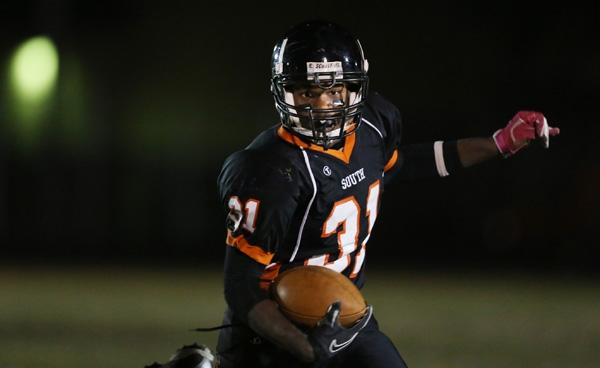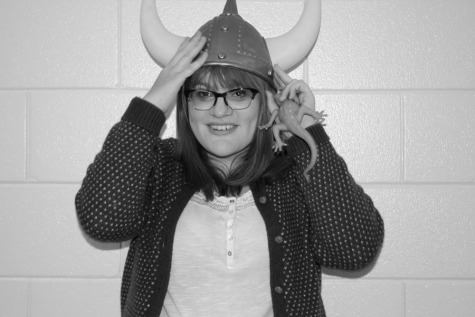For some athletes, GoTo cards have made all the difference
March 11, 2014
45% of students athletes surveyed said that GoTo cards have not helped them play sports at all. However, for some students, like Bowdry, the cards have made a huge difference. Getting to both school and sports would be harder for him without the program. “Without the go to card I’d definitely be worried about cost,” he said.
Last year, he got help from his team to get to and from games. “Basically I lived in the city so I usually get rides from my coach,” Bowdry said. He moved further away this year, which made getting rides more difficult. “I know [the team] would meet me halfway, or even lower, they know the condition I’m in,” he said, but the GoTo cards have freed him from having to rely on others.
“The GoTo card basically saved my highschool career,” said Payton Bowdry, a sophomore and football player. “For any sport I play it would be very hard without it.”
Kendra Roedl, a sophomore, said “It definitely was a factor we thought about… different kinds of extracurriculars.” She was referencing her work on the Minneapolis Youth Conference, where she was part of the campaign for the new GoTo card program, which provides unlimited access to public transportation for most students. Although Roedl herself does not use the program, she hoped that it would help students that have a hard time finding rides. Proponents at the district also believed that the new transportation plan would help more students play after school sports and participate in other extracurriculars.
According to a district survey, they’ve been successful. 41% of students use their GoTo cards for athletics. However, this seems at odds with a survey of South student athletes, which showed that 24% of students use them to get to or from sports. Most students use other transportation, like driving, carpooling or biking.
“We always carpooled… it was just more convenient,” senior Mary Onchiri said about playing backgammon last year. For most athletes, the go to cards are money saving and convenient, but not essential.
Sports are incredibly important to Bowdry. “It would be pretty hard to stop after my whole life playing sports. I would probably cry about it,” he said. Bowdry is also incredibly important to the South football team. The Star Tribune reported on the rising star, admiring his “willingness to learn and commitment to lead.”
In the same article, Coach Lenny Sedlock said, “In all the years I’ve been here this, I’d say this is the first kid who has a real shot at playing D-1 [college football].”
Bowdry was quoted saying “I have the heart to not quit, no matter what.” Although his heart has always been in the game, transportation costs made things much harder for him this year. “The GoTo card basically helped me a lot. When it comes to late games… if nobody can give me a ride I can just take the bus. It helps me and the people around me,” Bowdry said.
At South, we haven’t seen the high percentages of athletes using GoTo cards that the district survey found. Many athletes at South continue to use the same reliable transportation methods they used last year, but this doesn’t mean that the program has been unsuccessful.
For other students, the GoTo Cards have made a huge difference. “I used to have to wait for friends [for rides]… [now] I stay as late as I want.” junior Abdul Wake, a junior and soccer player said. He contrasted the struggle getting rides to summer practices with the independence of having a GoTo card. Like Bowdry, he found it easier to play sports once he got a card.
Sedlock emphasised the help it gives to families with working parents. “Parents know they don’t have to come get their guys. For parents that are working that’s difficult. [Now] they don’t need to worry about it.”
District employees hoped that the new program would help more students with transportation concerns participate in sports. Although the survey showed that this hasn’t happened yet it South, it may happen over time.
The predicted benefits have not happened for everyone, but overall the GoTo card program has been incredibly beneficial for the South community.






